- May 5, 2020
- Posted by: SportsV
- Categories: Event News, Features, Home News, Industry News, Interviews, News, Press Releases
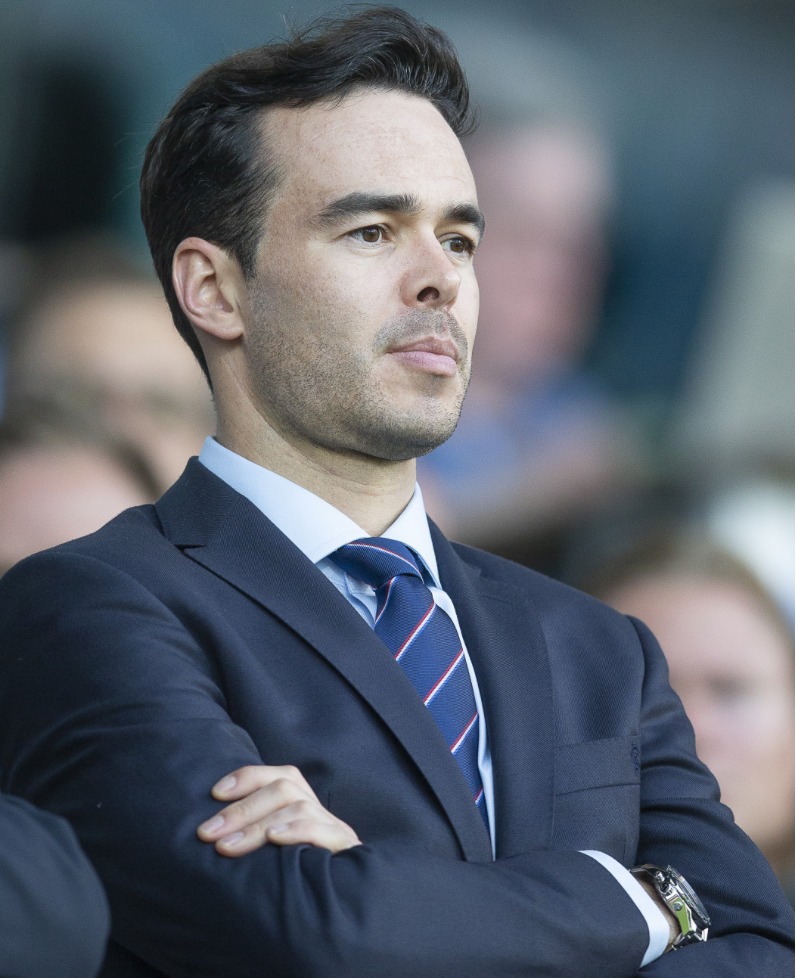
In this latest industry interview, we hear from James Bisgrove, Commercial & Marketing Director at Rangers Football Club, as he discusses Project 2022 and what it means for the evolution of Ibrox Stadium and the club as a whole, as Rangers count down to the milestone that is their 150th anniversary.
James, can you start off by telling us a bit about yourself, your background and career highlights to date:
In 2013, after three years of leading the Global Sponsorship portfolios for Emirates Airline based in Dubai, I moved to Switzerland to work for UEFA as a Sponsorship Lead for the UEFA Champions League and UEFA Europa League. Here, I was a member of the management team, with accountability for driving the strategy and execution of the UEFA Champions League sponsorship programme, growing revenues, fan engagement and managing relations with UCL and UEL competition sponsors such as: Heineken, PepsiCo, MasterCard, PlayStation, Nissan, FedEx, Kia Motors, adidas and Gazprom. I played a key role in the delivery of UEFA’s broader marketing and brand objectives, working closely with partners to grow the strength of the UCL competition brand.
In 2016, I became Head of Sponsorship Partnership Management for TEAM Marketing AG (the exclusive Commercial Agency of UEFA), where I was responsible for managing partner relations for 15 brands across UEFA Champions League and UEFA Europa League club competitions; ensuring continued revenue growth for UEFA’s club competitions and best in class industry standards are delivered for all partners.
In June 2019, I joined the Rangers FC Executive board as Commercial and Marketing Director, to oversee the commercial growth and modernisation of the clubs marketing and digital activities. I’m responsible for Commercial, Marketing, Digital, Hospitality, Rangers TV, Soccer Schools, Events and Partnerships teams, with a core focus on driving deeper fan engagement, growing the fan base, developing the Rangers brand (globally) and, ultimately, overall revenue growth.
In terms of career highlights, before I came to Rangers, my role was within the UEFA Club Competitions world, so I was responsible for the sponsors of the UEFA Champions League, the sponsors of the UEFA Europa League. The commercial revenue for the Champions League is €3.2bn; so it’s a top tier, world-class sporting property commercially. My role there was to manage the relations and ensure that we renewed our relationships and formed new business from a sponsorship perspective for the Champions League, which accounts for around 20% of that overall revenue (alongside media rights).
For me, the highlight was the Finals at the end of each season, so my last final was at the Metropolitano Athletico Stadium in Madrid in June, just before I joined Rangers. Being able to leave that role with 8 top tier partners – the likes of PepsiCo, Mastercard, Heineken, adidas and Nissan all very committed to those partnerships, all with great relationships, all moving into renewals, with increases in their rights, was very rewarding. It was also a nice moment and the right note on which to say “that’s been a great experience, I’ve added value”. I’m quite proud of what I created there, with a hugely talented team of about 25 that were working tirelessly on all those relationships and renewals for those partnerships. For me, that was the highlight, as it allowed me to step into the new chapter with Rangers and leave on the right note. I literally flew back from Madrid to Switzerland the next day and was in Glasgow 24 hours later at the office at Ibrox! So it was all pretty quick but at the same time a good note on which to move on to the new challenge here at Rangers.
In your role as Commercial & Marketing Director for Rangers, what are your key objectives for the next 1-3 years?
Predominantly, it’s driving new revenue growth across a number of different streams, whether that’s via commercial partnerships, hospitality, digital platforms – like our Rangers TV, which is growing rapidly – and our digital media, so what I’m mandated to do is grow all of those revenues as quickly as we can.
There’s also a big piece around fan engagement and driving a form a deeper fan engagement with our existing supporters, but in parallel trying to grow our support base. Rangers is incredibly fortunate to have 46,000 Season Ticket Holders, a waiting list of 10-12,000 and a really loyal fan base in Glasgow and wider UK, but outside of that, I think that internationally, there is huge potential, with the brand that the club have, the history, with Steven Gerrard as the manager, and all the great players on the team.
So it’s two-prong; the commercial revenue side but also the growing the fan base. And hopefully the two won’t be mutually exclusive; with obvious correlations between the two.
Can you provide us with an overview of Project 2022?
Project 2022 is the working group, which is a steering committee at the club that’s responsible for everything that we will do in our 150th season, which we will celebrate during the 2021/22 season.
The club will be a 150 years old in 2022, making it the first major European club to reach that milestone, so the idea is, across that season, to have a whole calendar of celebrations, that will take the form of different events, special matches, limited edition kits, a lot of marketing and fan engagement activity.
We’re also looking at our infrastructure and opportunities to enhance the match day experience by investing in the Ibrox infrastructure. The two hospitality lounges, Club 72 and Blue Sky Lounge, were the first two examples of us looking at our match day experience and our Ibrox facilities, and wanting to make an investment there.
In the case of the Blue Sky Lounge, we’re transforming the Argyle Suite, Morton Lounge and Symon Lounge to create this new hospitality space.
There are a number of other projects and feasibility studies that we’re doing in terms of Ibrox but also the Edmiston House building, which is currently a derelict building adjacent to Ibrox, which is owned by the club and used to be a social club. We’re looking at renovating that and introducing a multi-purpose events and conference space, so we can have match day fans over there, we can host conferences, comedy nights, etc., plus we can put our retail space in there; so the club store, potentially a club museum, coffee shop.
All of this is wrapped up in the umbrella of Project 2022 and there is a lot of planning and a lot of work going on behind the scenes within this working group at the club on this.
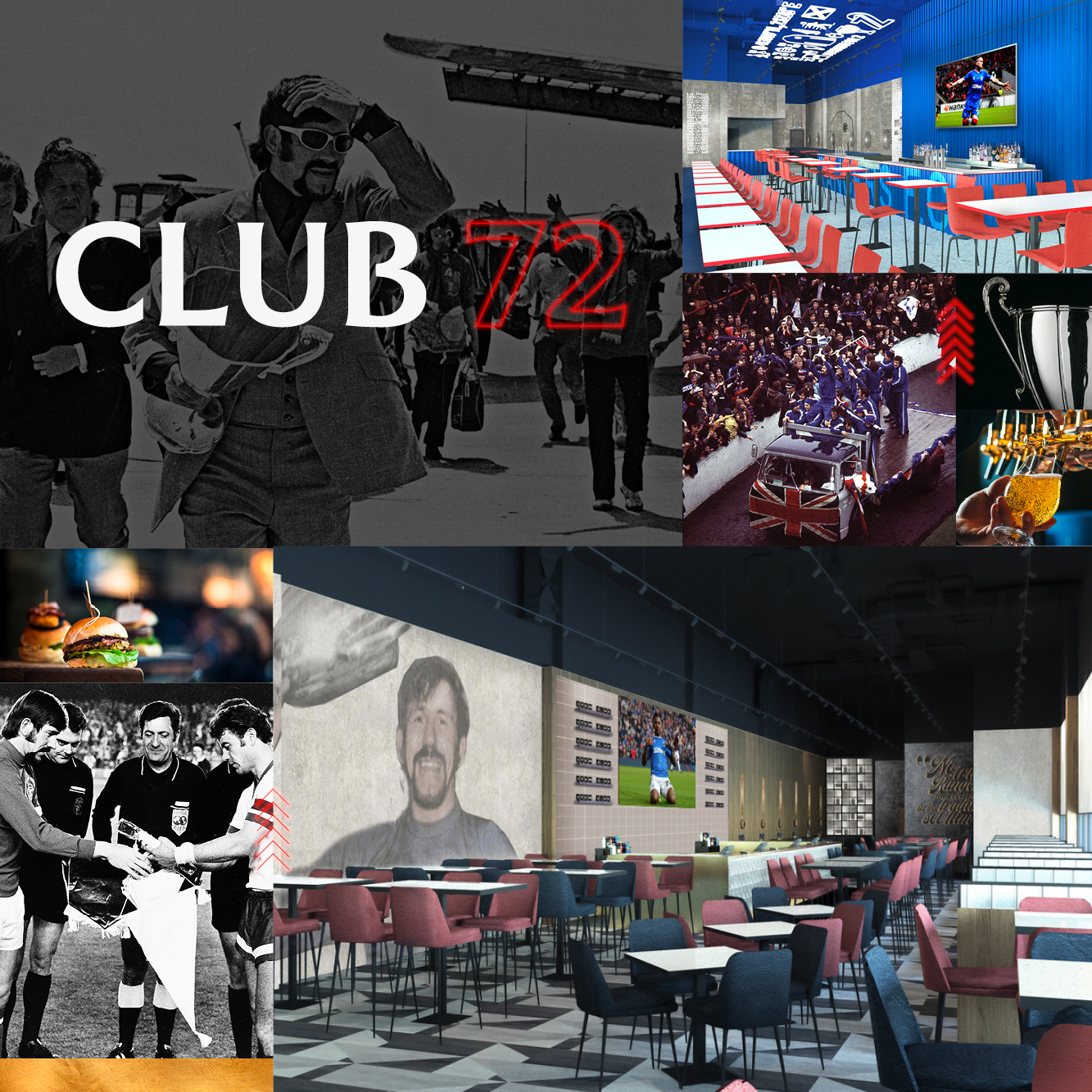
What is the current status of the Club 72 and Blue Sky Lounge projects?
Planning is finalised. We had planned to start the reconstruction and renovations in May 2020, when the season was finished, but obviously due to the Coronavirus, this is no longer possible. Ultimately, we’ve had to take the decision to delay the work until Summer 2021, so it means both of the new lounges, along with a lot of the other enhancements, will be ready in time for the 150th year.
Because we’d completed the planning work and it was something we were really proud to show to our supporters and sponsors, we wanted to launch it as and when it was ready, and to have a bit of a lead in, but also now a period of input from some of our clients, in terms of shaping the final experience. Obviously we have quite a clear view on what we want the facility might look like, but it’s going to be beneficial to all to get our clients view on what’s the best seating arrangements for them, what does match day live entertainment look like to them, does it include live music etc? And what other things are important. Is it a choice of beers; is it queuing; is it the big LED screens?
We have some really strong plans but what we want to do now is fine-tune those with input from the clients over the coming weeks and months in hand with our catering partners, Elior, and the two architects that we’ve appointed, 442 Design (for Club 72, who have worked on projects at Arsenal’s Emirates Stadium and Liverpool’s Anfield Stadium) and Keppie Design (for the Blue Sky Lounge, who have also done a lot of work in arenas and events, like The SSE Hydro in Glasgow).
There is a good chance that we’ll use either both or one of these architects for the overall continuity of Project 2022, but at the same time there is a good possibility that we’ll be going into a tender process to receive pitches and proposals. However, with the experiences we’ve had with 442 and Keppie, there’s a good chance we’ll be using them for future projects.
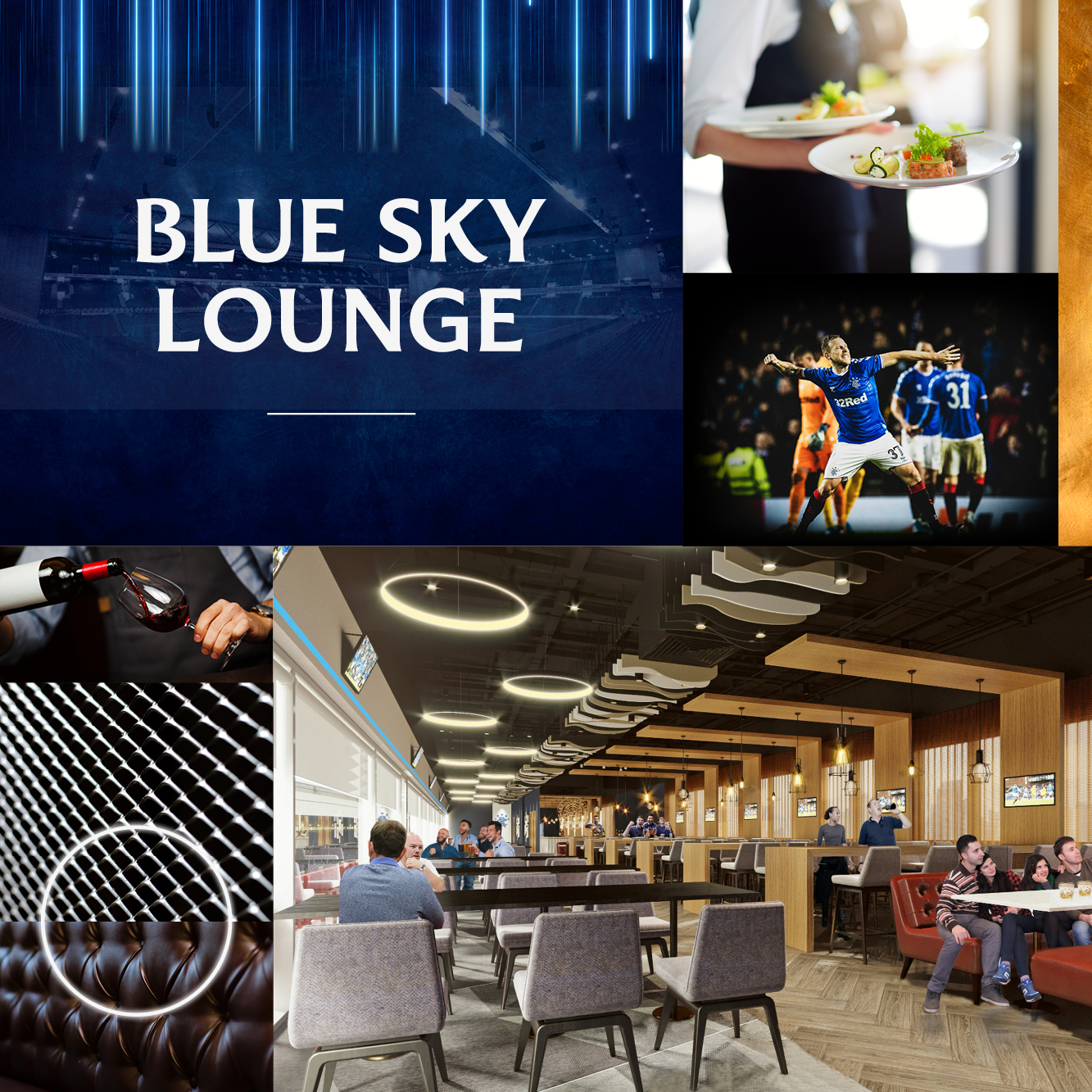
What were the main drivers behind the creation of the Blue Sky Lounge and Club 72?
At a high level, one of the things that we’re aware of from the club’s perspective is the number of premium seats that we have, versus where we think the demand fits within the wider industry, but specifically to the club.
At the moment, we’ve got around 1,300 hospitality places across 9-10 lounges, and of those 1,300, around 800-900 are clients, that come every week. We see an opportunity here, as the capacity of Ibrox has a capacity of 50,000. We know that other stadiums have a greater number of premium seats. For example, I recently visited The AMEX [American Express Community Stadium] in Brighton [home to Brighton & Hove Albion], which has a capacity of 30,000, of which some 3,000 are premium seats. So one of the opportunities we want to look at as we expand Ibrox is how do we increase the number of premium seats.
We also want to make sure that we cater for everyone. At Ibrox, we want to be able offer everything from the very high-end experience that is our Chairmans Lounge, which offers fine-dining, etc. – that package is north of £8,000 per year – but we also want to offer entry level, where it’s a bit more relaxed, sports bar feel, where you can have a beer pre-game and watch another match on the big screen with your friends in a relaxed atmosphere. From the entry level, right the way through to the very formal, we want to have five or six levels of different offerings, so we’ve almost got a menu of premium/VIP products for our existing client base, which will also allow us to attract new and more hospitality clients, and activate a waiting list and a built-up demand that we believe is there.
Specifically talking about Club 72, which is currently Bar 72, and what we wanted to do there is to retain the concept of it, with its relaxed feeling, an informal space, but to modernise it and give it a brand new look and feel, and inject technology and increase the seating area, and really focus on the guest experience in terms of how the drinks are served, what are the food offerings, what are the abilities to pre-book booths or to add a little bit of a premium experience in there.
Historically, Bar 72 has not been a hospitality product, rather a space for Season Ticket Holders, so that will be a new distinction for us, as it moves the space out of the management of our ticket office into our hospitality team’s. That means that every client now has a dedicated account manager, with service levels taking it up a notch, both on match day and outside of match day. What we’ve been careful to do is not rip it up and bring in something that doesn’t fit, but at the same time, we wanted to evolve the experience, whilst keeping the heritage to the 1972 European Cup Winners Cup Final, which is the one we won in Barcelona. The space is really a testimony to that famous night for the club, when they won their only European trophy and we want that theme to remain but to be modernised to a degree.
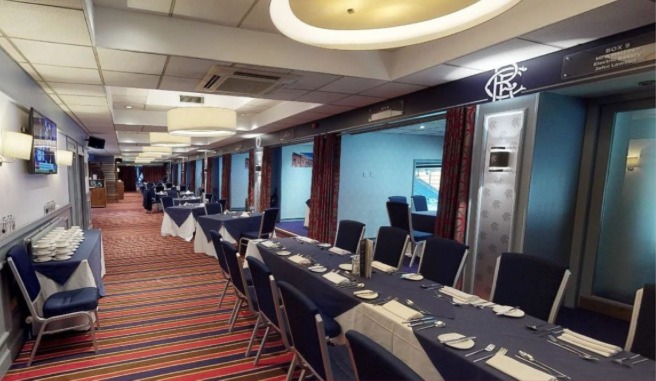
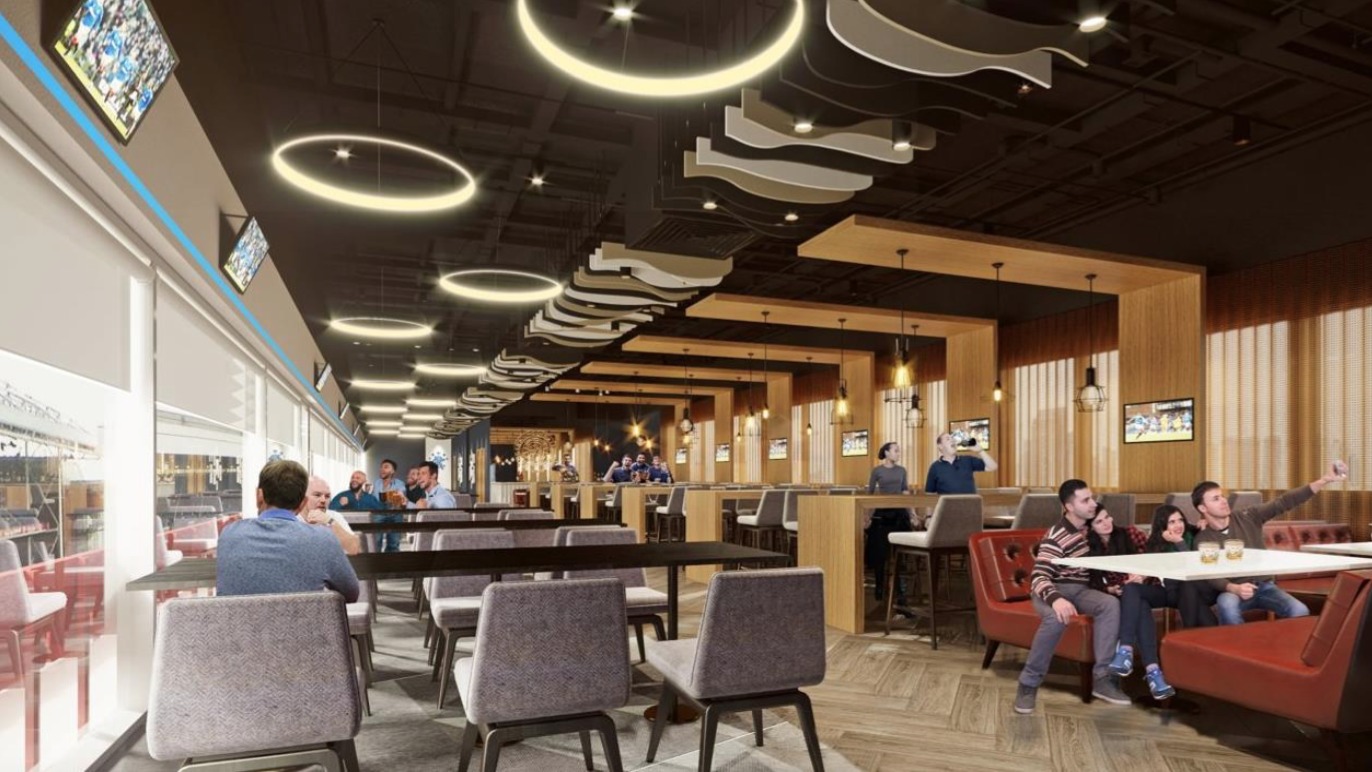
The Blue Sky Lounge is really exciting as it allows us to increase the capacity of not only the lounge but also the stadium. The way it’s currently constructed [refer to the photo above to see how it looks at the moment] is that there’s a number of boxes built inside the lounge, so that you actually sit behind the glass. What we’re actually going to do is knock all of those out and install 364 premium seats (proper premium, padded seats) and in doing so, it also allows us to increase the capacity of general admission seats; I think we get around another 100, plus it means we can add an accessible area or wheelchair platform, which is something much needed in the stadium and indeed for our supporters.
Overall, although we only increase the capacity of Ibrox by a couple of hundred, with the waiting list that we have for Season Tickets, that’s very helpful. It also allows us to really open up that space, so it’ll be fully glass fronted, giving this quite spectacular panoramic view of the stadium and the pitch pre-match.
We were really inspired by a lot of our European trips, when we went out to play different European clubs, from Denmark and Germany to Portugal, where you see these new, modern stadiums, with these glass-fronted, open-aired, very well lit hospitality lounges, with that modern contemporary feel.
The project is quite significant, as it involves us knocking out the existing 12-16 boxes in the reconstruction of that space. The finished Blue Sky Lounge will boast a single pane of glass, the length of the stand; something quite spectacular. And to compliment that, what Elior have brought in, with their catering experience, are a number of innovative ideas around the way that they serve the guests, with things like a chef theatre area and live cooking, a whole mix of tables, softer seating, etc., depending on the clients’ specific needs, from a family sitting down on a low seated, traditional table to a table for 3 or 4 friends, going backwards and forwards to the bar, in a more relaxed and informal environment, they’ll have that option as well. So for us, without wanting to blow our own trumpet, that will be the pinnacle of sporting excellence anywhere in Scotland, so we’re really excited.
When you mention taking ‘inspiration’ from other European clubs, are there any that standout?
There were a couple, BSC Young Boys’ Sky Club at Stade de Swiss in Switzerland, RB Leipzig’s Red Bull Arena in Germany and FC Midtjylland’s MCH Arena in Denmark, we actually did a benchmarking case study on these ones.
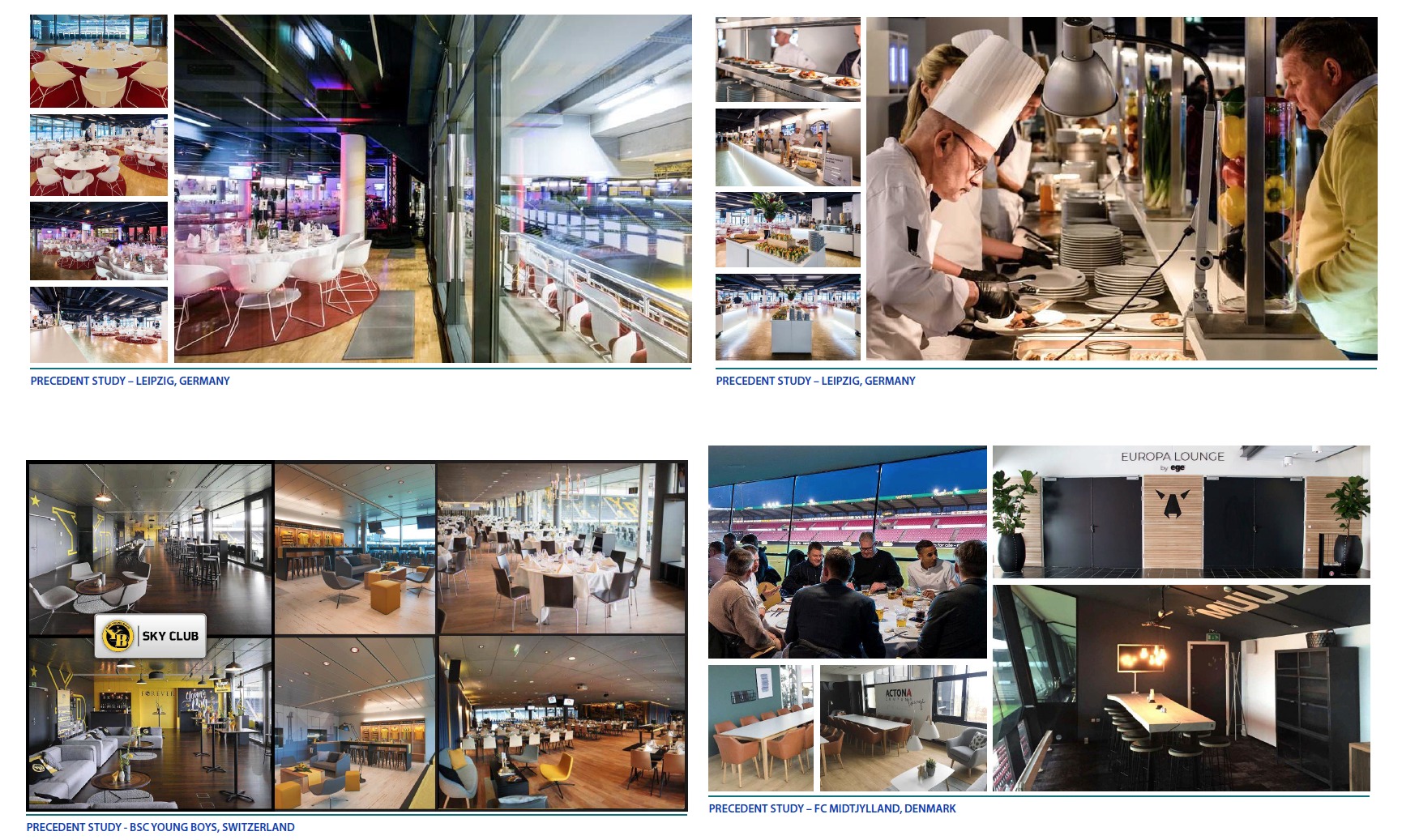
How will the club and clients work together to decide on the final offering and design elements for Club 72 and the Blue Sky Lounge?
The delay means we can take our time and have the clients guiding us in terms of input for the offering.
For the touches in terms of design, we’ve been led by the expertise of the architects, so we’ve been through that process with 442 and Keppies, where they presented us with 5-10 different options for the furniture, the colours for the walls, the dressings, the designs, etc., so we were really led by them but we also gave our own input from a club marketing perspective, because we’re also going through an exercise of evolving our own brand and our own marketing guidelines from the clubs perspective, so we wanted to have that element translated through, particularly for the Blue Sky Lounge.
In terms of hospitality and revenue generation at Ibrox, what percentage does hospitality equate to at the moment and what are your predictions once the Project 2022 renovations have been completed?
I think the very top is 7-8% of the clubs revenue is coming from hospitality at the moment, that just shows how important it is for us as a revenue stream and as we continue to grow our premium packages and enhance the match day experience for those clients, the hope is that revenue will continue to grow when we can get back to normal.
Finally, how do you think hospitality will evolve over the next 2-3 years?
My view is, and I’ve touched on this a little earlier, it’s all about providing a choice and we are seeing a change in consumer/client habits.
Rangers has a set of quite traditional corporate clients that like to come to the stadium at midday on a Saturday, when the game kicks off at 3pm, they sit down at a table with a white table cloth and enjoy a very traditional type of dining experience, but I think as consumers habits and society changes, there is a need for a different experience, there’s a need to modernise, to offer different choices, for people that haven’t always necessarily got the time to spend 7-8hrs at the stadium. We just need to evolve with the consumption habits of our clients and that’s what feedback is really, really important.
What we do, we do well, which is the traditional, high-end, hospitality experience, but where we need to evolve is the modernising of the hospitality experience that can cater for a slightly different business/young professional type of demographic that might want to experience match day in a different and more informal way, but still get a premium experience at the same time.
One of the areas we’re also looking at, is the current mega store at Ibrox, if we move this into the new facility at Edmiston House, that gives us a blank canvas to create what could be a further, more relaxed, sports bar type of experience. This has informed some of our thinking when we’ve elevated Bar 72 to Club 72. Some of the supporters I’ve spoken to have actually said “We quite like the informal nature, we just go in, we get a beer, we’ve got fantastic seats”, because the Bar 72 seats are some of the best in the stadium. So we’ve thought to ourselves, as we evolve, elevate and enhance that experience, hopefully what we’ll be able to do within Project 2022 is offer a more relaxed, casual experience, that justifies that full spectrum of hospitality choice.
And again, crucially in doing that, it will allow us to continue to elevate the number of premium match day packages that we’re able to offer at Ibrox.
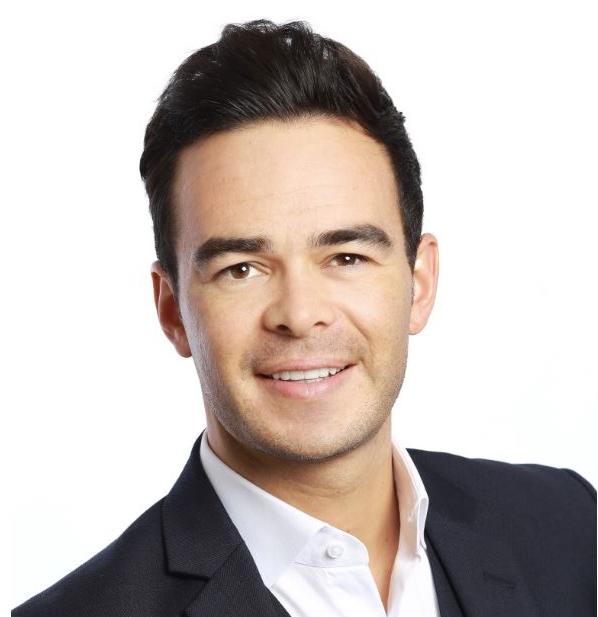
Huge thanks to James Bisgrove for taking the time to do this interview with us and we’re looking forward to hearing more about Project 2022 and the evolution of Ibrox Stadium during the next edition of ALSD International, for which James is one of the 45+ confirmed high-level industry expert speakers.
Images, courtesy: Rangers FC
Main image (top): Rangers Director, James Bisgrove, during the Europa League qualifying match at the MCH Arena, Denmark
#football #Hospitality #PremiumSeat #SportsHospitality #SportsBiz #Stadia
ALSD International – Europe’s leading event for the Premium Seat & Sports Hospitality sector – taking place at Liverpool FC’s Anfield Stadium this October, 12-13, will examine how to increase revenue through new builds, renovations, service expansions and the latest technology, and how to recoup lost revenue post COVID-19.
The next edition of ALSD International – organised and delivered by the Association of Luxury Suite Directors in conjunction with Sports Venue Business – will feature a high-level conference, an exhibition hall showcasing the latest products, services & solutions, behind-the-scenes tours of Anfield Stadium, Goodison Park and M&S Bank Arena, in addition to numerous networking events, ensuring optimised opportunities to knowledge-share, network and do business.
#ALSDInternational – Europe’s leading event for the Premium Seat & Sports Hospitality sector
#ALSD – Leading the Premium Seat sector for the last 30 years
#sportsvenuebiz


